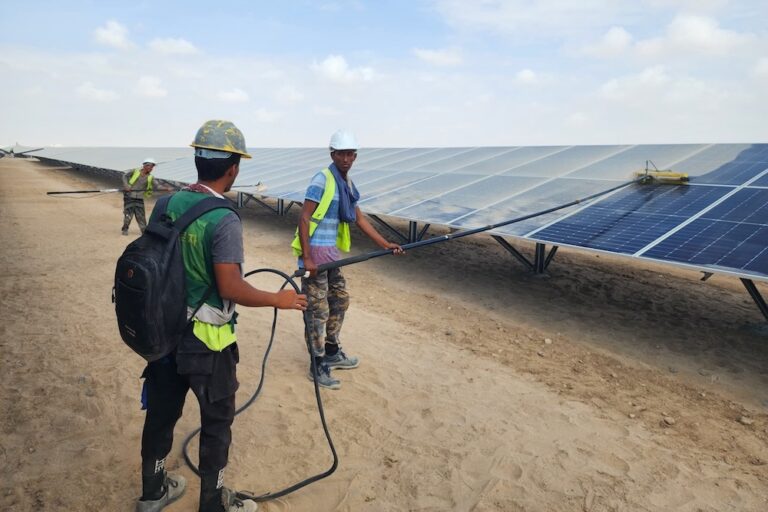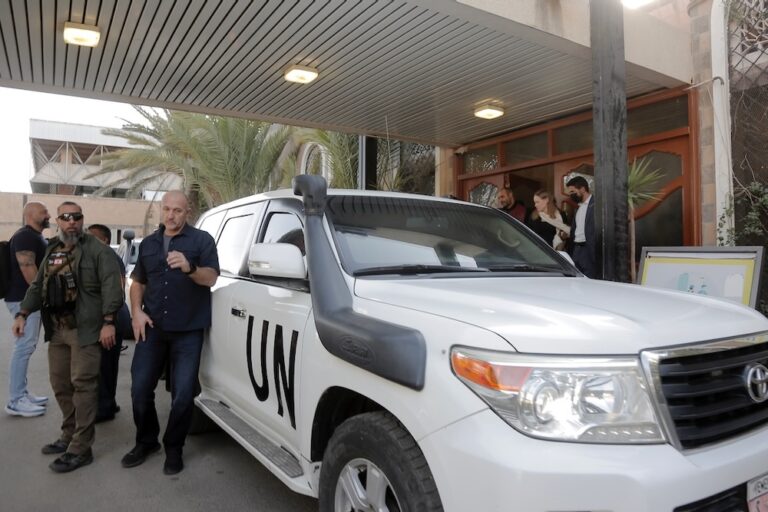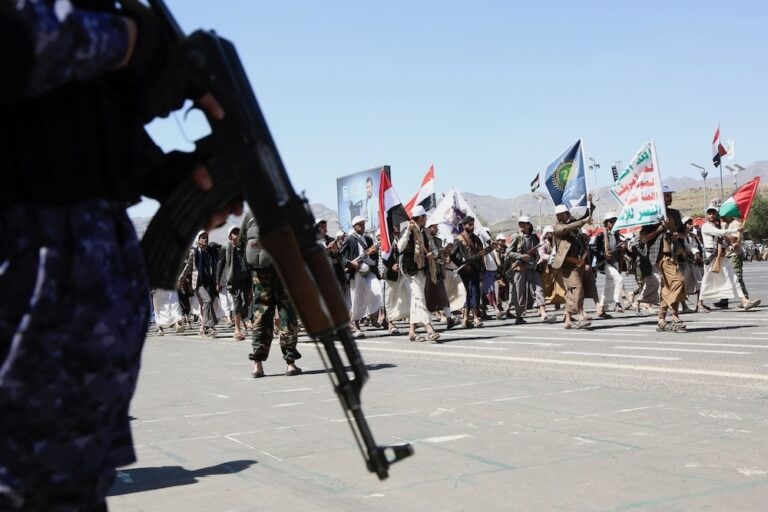(RSF/IFEX) – The following is an RSF press release: In tougher line, authorities close two newspapers while keeping journalist in prison Accusing the Yemeni authorities of “arbitrary censorship,” Reporters Without Borders today urged them to reinstate the licences of two newspapers that have been unable to publish for the past few weeks, Al-Neda and Al […]
(RSF/IFEX) – The following is an RSF press release:
In tougher line, authorities close two newspapers while keeping journalist in prison
Accusing the Yemeni authorities of “arbitrary censorship,” Reporters Without Borders today urged them to reinstate the licences of two newspapers that have been unable to publish for the past few weeks, Al-Neda and Al Hurriye, and reiterated its call for the immediate release of Abdulkarim Al-Khaiwani, the editor-in-chief of an opposition weekly who was given a one-year prison sentence last month.
The authorities should keep their promises to respect press freedom, the organisation said, recalling that President Ali Abdullah Saleh undertook in June to “work to put an end to prison sentences for press offences, which would be a big step forward for press freedom in Yemen.”
Reporters Without Borders’ appeal followed a press release by the Union of Yemeni Journalists (SJY) yesterday criticising “the government’s lack of sincerity” and deploring an “unprecedented wave of press freedom violations that is likely to ruin all the progress accomplished since unification [of north and south Yemen in 1990].”
The SJY’s statement also deplored the impact of Al-Khaiwani’s imprisonment, saying it had created “a dangerous environment for all journalists with governmental, party and privately-owned media.”
The offices of the new weekly Al-Neda (“The Call”) were closed on 15 October by the information ministry on the grounds that it was two days late in bringing out its first issue, which was meant to appear on 13 October. Editor-in-chief Sami Ghaleb told the daily Yemen Times the closure was a “major aggression” and discriminatory as many other newspapers came out irregularly in Yemen.
It seems the real reason for its closures was the fact that the first issue tackled sensitive subjects such as the international campaign for Al-Khaiwani’s release and the splits between the different wings of the ruling General People’s Congress (GPC).
A few days earlier, the information ministry suspended the licence of the daily Al Hurriye (“Freedom”) for an indefinite period on the official grounds that it had changed its logo without permission.
Editor-in-chief Akram Abdulkarim Sabra told Reporters Without Borders the newspaper wanted to change its format and logo to mark its 25th anniversary. “We were amazed and outraged by this totally disproportionate decision, which was just a pretext for punishing the newspaper,” he said.
Meanwhile, Al-Khaiwani’s newspaper, Al-Shoura, was suspended for six months when Al-Khaiwani was sentenced to a year in prison on 5 September for allegedly libelling President Saleh.


